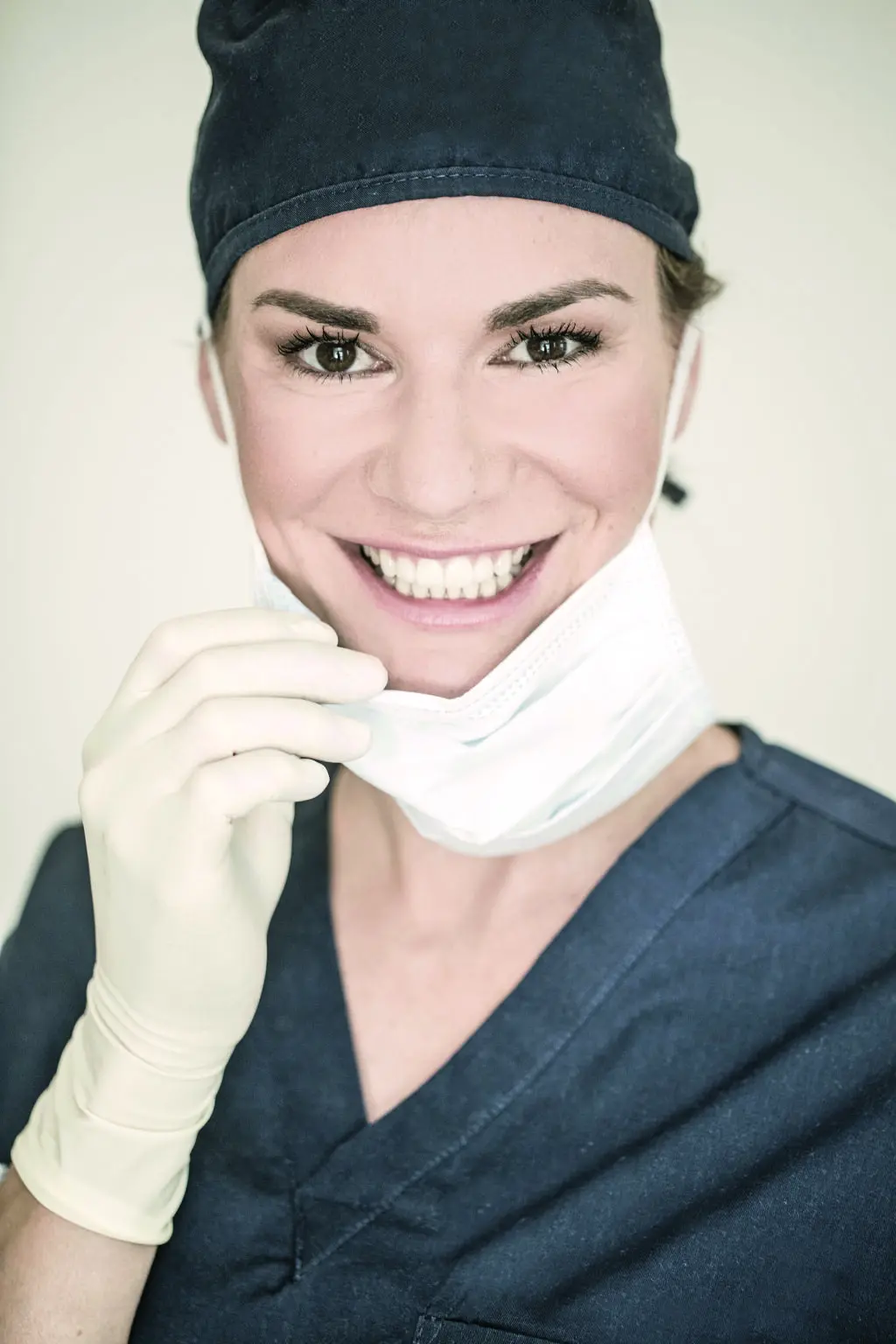
© Miguel á Padriñán
December 28, 2023
Margit Hiebl
- Health
Prevention is better than cure.
An old wisdom that is more relevant than ever. Experts explain the role prevention measures should play.

© Miguel á Padriñán
December 28, 2023
Margit Hiebl
An old wisdom that is more relevant than ever. Experts explain the role prevention measures should play.
Health and its preservation has become synonymous with high quality of life and a life goal. A megatrend that, according to the 2023 Future Report from the Future Institute, has gained momentum due to the pandemic. To maintain it, 'Preventive Health' is becoming increasingly important in a society that is ever more health-conscious.
This refers to a bundle of measures. On the one hand, what is summarized under the term healthy lifestyle. Also handling stress – and that it does not always have a harmful effect, and can even be used consciously for staying healthy. 'Survival genes are activated through deliberately induced stress situations. For example, during ice baths through cold, in the infrared sauna through heat, or during breathing exercises following Wim Hof through CO2 accumulation,' explains Dr. Lukas Kohler, medical director at LVATE Aesthetics in Munich.
A prevention strategy that aims to lead to better cell health in the long term.Good prevention also includes health checks that reduce the risk of illness through early detection. A check-up check:

© Vivamayr Maria Wörth
Healthy Through Fasting and Alkaline Cuisine: Vivamayr Maria Wörth
For Dr. Werner Zancolo, the medical director of the Medical Resort Vivamayr Maria Wörth , annual laboratory analyses to determine the blood count, vitamin balance, minerals, trace elements, and hormones are among the important preventive routine examinations. “Also a determination of the fat and sugar metabolism, as well as liver and kidney parameters,” says the expert.
“From the age of 50, the classic preventive examinations such as ultrasound of the organs, specialist examinations in gynecology or urology, as well as stomach and colonoscopies should be added.” For those who want to do more: “To gain insight into the topic of gut health, microbiome examinations, i.e., stool analyses, are also quite useful,” says Dr. Zancolo.
Genetic analyses that say something about the nutrition type and the body's detoxification capacity are increasingly on the rise. Those who are under constant stress and feel exhausted can have the function of the mitochondria - the powerhouses in the cells - measured. “Fasting is an important part of prevention,” says Dr. Zancolo, “because it activates the cell cleaning process, the so-called autophagy.”
Once a year, the body should therefore be given three weeks to cleanse and regenerate. Preferably under medical supervision in a fasting clinic, especially if it's the first time, to better respond to so-called “fasting crises.”
Exercise is also an important component of fasting. “But be sure to exercise moderately, so no intense sports, to exhale as much excess acid as possible and not to build up new acids.” In everyday life, intermittent fasting has also proven itself, says the expert. It is easier to carry out because you do not have to completely give up food.
Important: “The fasting period should last at least 16 hours, the eating break should take place in the evening, which means that skipping dinner is more effective than skipping breakfast.”
For Prof. Dr. Sebastian Siebenlist , Head of University Sports Orthopedics at the Klinikum rechts der Isar in Munich, regular sports medical check-ups make sense to identify possible problems early on but also to receive individual recommendations for the respective sport. There is also a subsidy from the health insurance funds for this, usually every two years.
However, in his opinion, whole-body scans without a specific reason are rather overrated. “These scans can be expensive and bring unnecessary radiation exposure without providing clear health benefits,” says Prof. Siebenlist. “It is important to focus on the specific examinations that might be necessary due to symptoms or risk factors.”
This also applies to osteoporosis prevention: If risk factors such as vertebral fractures, corticosteroid intake, or type II diabetes mellitus are present, he recommends bone density measurement rather early (according to guidelines, women over 70, men over 80 years). The best measure of self-prevention is to avoid overload.
This includes optimal preparation, and for Prof. Siebenlist, this begins with technique and equipment. The sport must be properly learned, and the equipment must be appropriate for skill and condition. In sports themselves, it applies: thoroughly warm up, stretch, always increase intensity and training duration slightly – listen to the body and pay attention to warning signals.
“Anyone who already has joint problems or injuries should get recommendations from a doctor, physician, or fitness coach.” What also protects against overload: Don’t just only practice the one favorite sport, but also try others. Sports try to avoid one-sided stress.
A good addition can be to strengthen overall body strength and stability with squats, deadlifts, lunges, or functional training, provided there are no joint problems. Improve posture and stability by strengthening the abdominal, back, and lateral core muscles. More flexibility is achieved with stretching or yoga , better cardiovascular fitness through endurance training.
It does not hurt and that is why it is so insidious: the glaucoma – or also glaucoma. It is the most common cause of blindness before the age of 60, affecting around 500,000 people in Germany. Dr. Janna Harder Therefore, it is one of the most important preventive examinations from the age of 40:
"Glaucoma is a disease that you don't feel and then notice much too late." The responsible increased intraocular pressure, which irreparably damages the optic nerve, can be easily measured. In addition: "The early stages can be well treated with eye drops that lower intraocular pressure or gentle laser methods."
But even otherwise, a professionally preventive look into the eyes is worthwhile: "The retina is the only organ where arteries and veins can be seen directly and without ultrasound," says Dr. Harder. This is important, for example, for diabetics, but also for the early detection of high blood pressure and vascular constrictions - so ophthalmology also helps in other areas of prevention.
What can you do yourself for eye health? "A lot of daylight and looking into the distance," says Janna Harder. This prevents certain messengers from making the eye grow more "in length", which leads to myopia. Therefore, everyone should go outside every day, but always protect their eyes from UV light with sunglasses in summer and snow.
Additionally: "Blink more frequently at the computer," recommends the doctor. "This expresses the glands in the eyelids and improves the tear film. Advice for contact lens wearers: "Wear them for a maximum of eight hours, do not sleep with them and ensure sufficient moisture - especially if you sit a lot at the computer." And: Regularly take glasses days – especially those who have been wearing lenses for a long time – so that contact lens intolerance does not develop.
"Mental health usually only comes into focus when early warning signs or symptoms are present. Depression is now the leading cause of early retirement," says Prof. Dr. Andreas Menke , medical director of Medical Park Chiemseeblick, a specialist clinic for psychosomatic medicine and psychotherapy.
Unfortunately, there is still no check-up in the sense of prevention. For an initial small self-assessment, Prof. Menke recommends the mood questionnaire "PHQ9" (available at deutsche-depressions-hilfe.de ). The result could then be a conversation with a general practitioner or psychotherapist. How can you reduce your own risk of developing depression?
One of the most effective measures is sport – 150 minutes of strength or endurance training per week, according to Prof. Menke, are already necessary. It is important that the sport is really fun and not perceived as a duty. Therapeutic climbing on the wall has proven to be particularly effective.
“The mix of challenge, affirmation, trust and control significantly increases self-efficacy according to studies more than normal sports units,” says the expert. However, high self-efficacy also means knowing well about mental health and possible stress factors.
The better you can help yourself. “As banal as it sounds: Avoid chronically toxic stress as much as possible.” Acute stress is part of life, sometimes it even has some good in it. But the classic job hamster wheel, an unhappy relationship or a chronic illness (even of a relative) permanently weighs on the psyche.
Those who cannot change the situation must learn to deal with it in order not to get sick. A classic component of psychotherapy here would be ACT (Acceptance and Commitment) therapy. Alternatively, a break in a resilience retreat could help, as offered, for example, in the Ayurveda Parkschlösschen in Traben-Trarbach.
The combination of Ayurvedic body treatments that open up and relax emotionally, with meditation and psychological coaching, helps to break through blocking behavioral patterns.
"Health begins in the mouth" is not just a saying for dentist Dr. Malte Schönrock from Dent Aesthetic in Kellinghusen. Important cornerstones are regular dental check-ups and professional teeth cleaning. But a treatment system according to the motto "one fits all" is no longer enough for Dr. Schönrock:
"Individual preventive measures and the adaptation of therapies and treatments to the personal characteristics and needs of each patient in terms of personalized medicine are in the foreground. This also includes individual diagnostics and health monitoring." A sensible investment, even if health insurers only partially cover it.
"Because it increases the chance of not only recognizing changes in the mouth but also early signs of certain systemic diseases and intervening." More than 40 medical connections between an imbalanced bacterial flora and inflammation in the mouth have been scientifically proven.
From diabetes, cardiovascular diseases, rheumatic diseases, depression, cancer, osteoporosis, skin diseases, inflammation of endoprostheses to pregnancy complications.
From the age of 45, periodontitis is also considered the main cause of tooth loss. And it also affects mental health: “The impairment of the chewing process has been proven to affect blood flow and brain function, and learning and memory deficits can result,” says Dr. Schönrock.
Primarily, prevention in urology refers to oncological diseases – because carcinomas and their consequences in the prostate, bladder, kidney, testicle, and penis are among the most common causes of death in men. Dr. Daniel Kaminski , specialist in urology and andrology, from the Urology at Wienerplatz in Munich, therefore advises: “Men from around 40 years of age should go for a preventive examination once a year.”
Usually, the statutory health insurances cover the digital-rectal examination of the prostate or the palpation of the testicles and an ultrasound of the kidneys. Unfortunately, an extended prostate diagnosis with special tumor marker diagnostics is not, but according to Dr. Kaminski, every man should “treat” himself to it. Smokers also to a bladder tumor antigen test, because their risk of developing a bladder tumor is generally increased.
Lifestyle check-ups also make sense for men: “At the latest when symptoms such as erectile dysfunction, fatigue, lack of desire, or increase in abdominal fat (despite physical activity) occur, hormone diagnostics should be considered,” advises Dr. Kaminski. This allows countermeasures to be taken with medication in the event of a deficiency.
The testosterone status is also interesting with regard to osteoporosis in men. The risk of developing it increases with the decline in testosterone production as you age. A classic case of the gender gap in medicine.
Important for young men regarding future partnerships: They too should get vaccinated against HPV during puberty. This can reduce the risk for women of developing ovarian and cervical cancer due to the human papillomavirus.

Professor Dr. Sebastian Siebenlist

Dr. Janna Harder

Prof. Dr. Andreas Menke

Dent Aesthetic in Kellinghusen